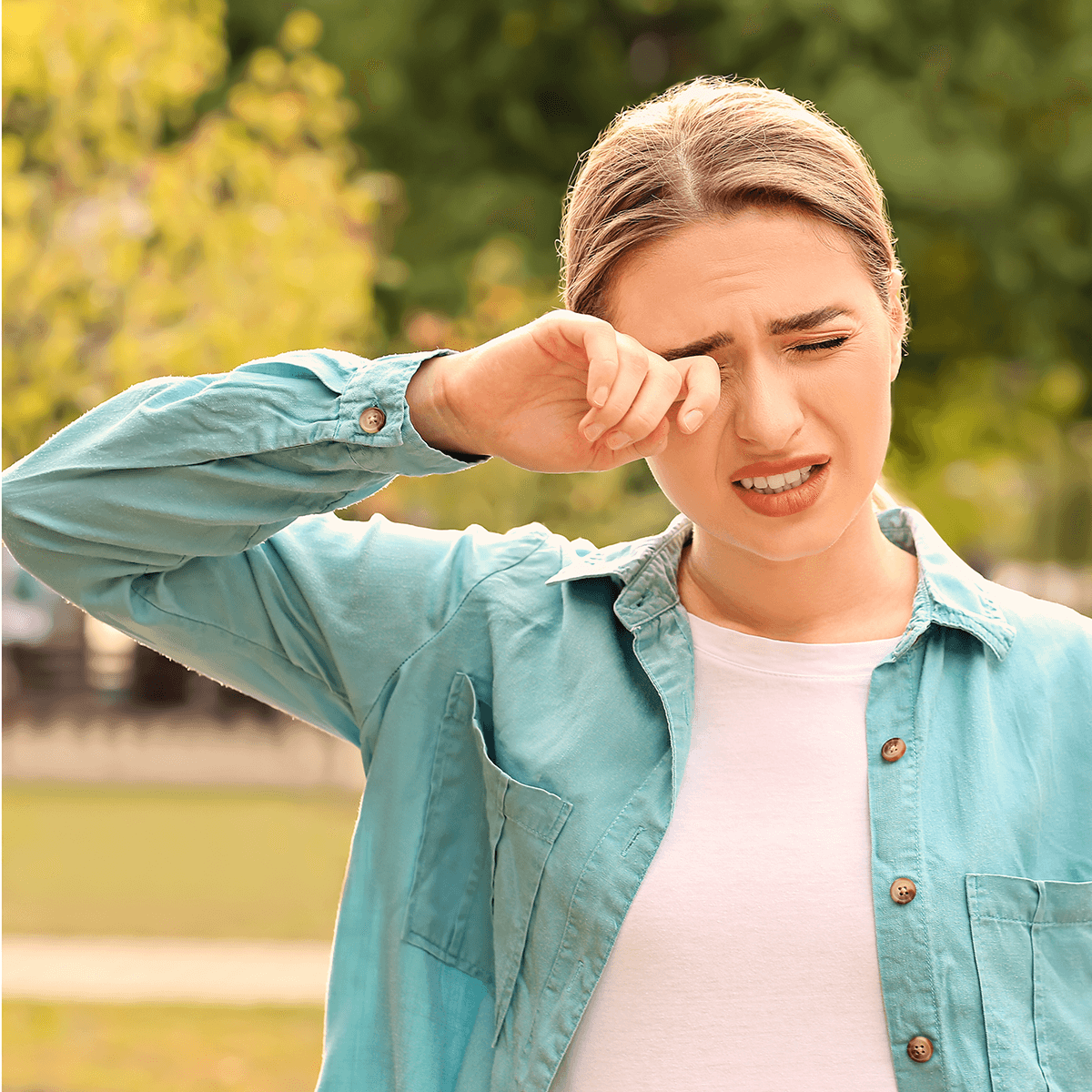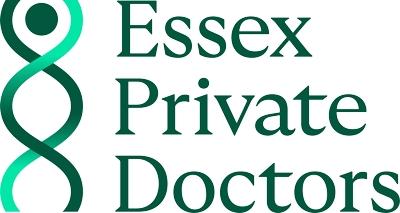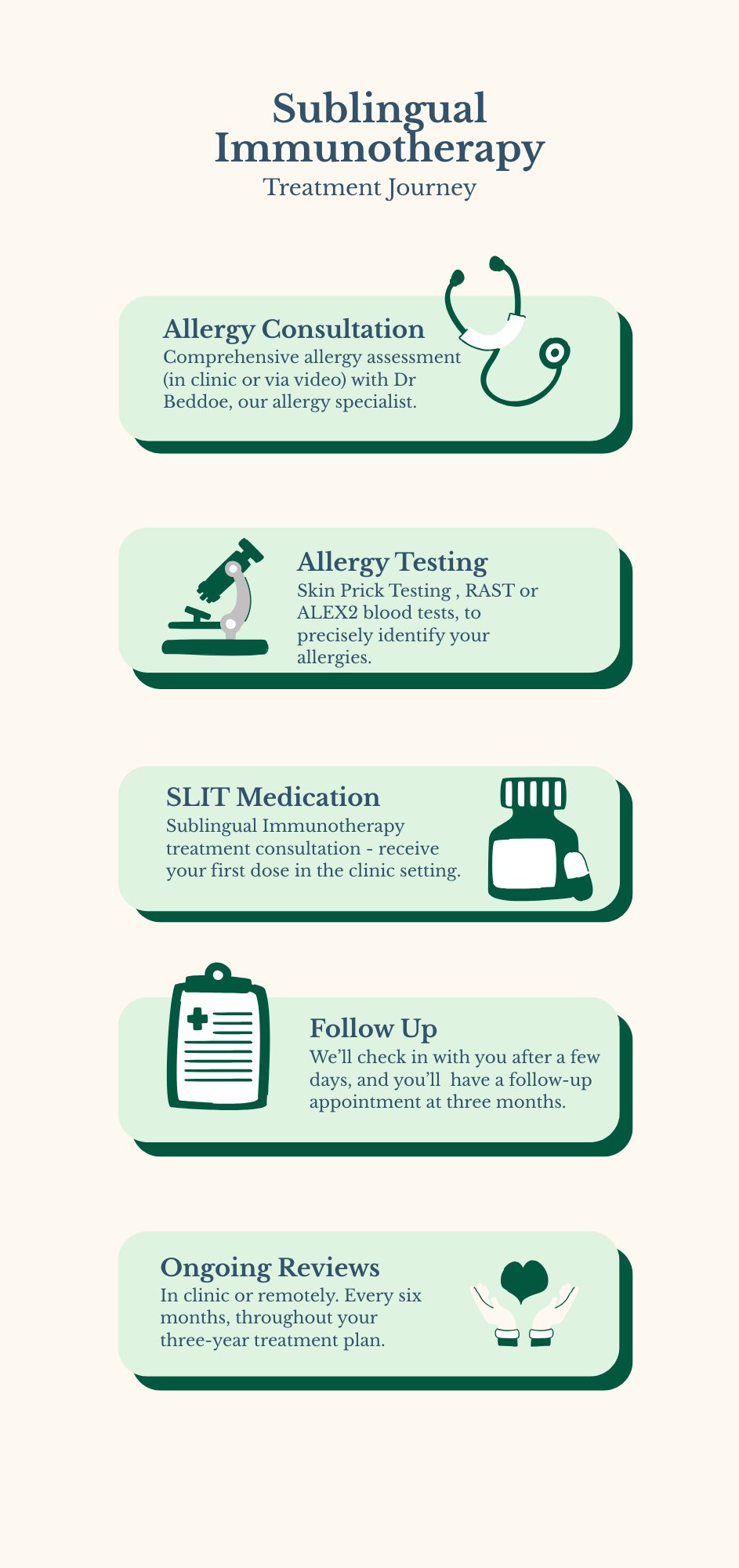PRIVATE SUBLINGUAL IMMUNOTHERAPY (SLIT) IN ESSEX
Private Sublingual Immunotherapy (SLIT) in Essex
Private Sublingual Immunotherapy (SLIT) At Essex Private Doctors
Private Sublingual Immunotherapy (SLIT) At Essex Private Doctors
Could SLIT finally put an end to your allergies?
If hay fever (seasonal allergic rhinitis) season has you dreading spring, or if you’re constantly battling a runny nose, itchy eyes, or year-round sneezing from dust mites or a pet allergy—you’re not alone. But what if I told you there was a way to not just manage those seasonal allergies, but actually reduce or eliminate your allergic response over time?
Let us introduce you to a treatment that could be a game-changer: Sublingual Immunotherapy (SLIT).


What is Sublingual Immunotherapy (SLIT)?
Allergy is when the body’s immune system erroneously overreacts, producing antibodies and an inflammatory response to something that’s a harmless substance, like pollen.
How a person comes into contact with a particular allergen will often determine the kind of allergic symptom the person may experience. For example. If you inhale tree pollen, or grass pollen, you might experience nasal or respiratory symptoms (e.g. allergic rhinitis- aka hay fever). If you are allergic to shellfish and were to eat prawns, you might experience diarrhoea or stomach pain.
It is possible for any allergen, however, to produce a constellation of symptoms, and some allergic responses can be very severe, causing anaphylaxis. This is a rare condition, which can be life-threatening, and may come on very quickly. It can cause tongue and throat swelling, difficulty breathing, feeling very faint and unwell, and sometimes an itchy, bumpy rash.
Who is Sublingual Immunotherapy (SLIT) ideal for?
SLIT is ideal for children and adults who may have atopic dermatitis /allergic asthma/ allergic rhinitis / allergic rhinoconjunctivitis who’ve not responded well to the usual allergy treatment medications like antihistamines or steroid nasal sprays. It’s most effective when we know exactly the specific allergen you’re allergic to.
At Essex Private Doctors, we offer SLIT for:
🌾 Grass pollen allergy (GRAZAX®)
🤧 House dust mite allergy (ACARIZAX®)
🌳 Tree pollen allergy (ITULAZAX®)
SLIT treatment is not yet available for food allergy or drug allergy conditions, or gluten intolerance problems.
Can Children have Sublingual Immunotherapy?
Here’s how the current options are licensed:
🌾 Grass pollen allergy (GRAZAX®)– from age 5+
🤧 House dust mite allergy (ACARIZAX®)- from age 5+
🌳 Tree pollen allergy (ITULAZAX®) – from age 5+
This means children as young as 5 may be able to benefit, particularly if they’re suffering every summer with severe hay fever and have a confirmed allergy to grass pollen. The medication is a small tablet that dissolves in seconds under the tongue, and it’s injection-free!


Benefits of Sublingual Immunotherapy (SLIT) in Essex
You might be thinking, ‘Can’t I just take antihistamines?’
SLIT isn’t a sticking plaster. It’s long-term immune training.
Who shouldn’t have Sublingual Immunotherapy (SLIT)?
SLIT is very well tolerated by most people. In fact, it’s one of the safest allergy immunotherapy options available.
The most common side effects are:
Sublingual immunotherapy (SLIT) is generally extremely safe, but it’s not suitable for everyone.
It should be avoided in people with:
- Severe or uncontrolled asthma
- Autoimmune conditions or malignancy
- Oral infections or ulcers
- Eosinophilic oesophagitis
- Use of beta blockers or ACE inhibitors
SLIT isn’t usually started during pregnancy but may be continued if already underway.

Are there any risks or side effects of Sublingual Immunotherapy (SLIT)?
SLIT is very well tolerated by most people. In fact, it’s one of the safest allergy immunotherapy options available.
The most common side effects are:
- Itchy mouth or throat
- Mild swelling under the tongue
- Slight tummy discomfort
These tend to appear early and usually settle within 1–2 weeks. Taking an antihistamine daily during the first two weeks can help reduce this initial irritation.
Severe allergic reaction side effects are very rare, and anaphylaxis is extremely rare. Still, we supervise the first dose carefully, just in case.
If you’re still struggling, book an appointment for an allergy consultation.


Sublingual Therapy (SLIT) in Essex – FAQs
Why Choose Us for Sublingual Immunotherapy (SLIT)?
As GPs, we see how much allergies interfere with people’s lives—missed school days, disturbed sleep, struggling through important events, or simply avoiding the outdoors.
That’s why we’re passionate about bringing this treatment to our patients.
Dr Eleanor Beddoe is an allergy specialist, trained in allergy therapeutics and the prescribing of allergy medication.
SLIT offers a way to:
- Take back control of your health
- Reduce the need for medication
- Treat the root cause of your allergies
- Offer your child the chance to live allergy-free
And yes—while the commitment is long (daily for 3 years), the potential payoff is huge: life-changing, lasting relief.



